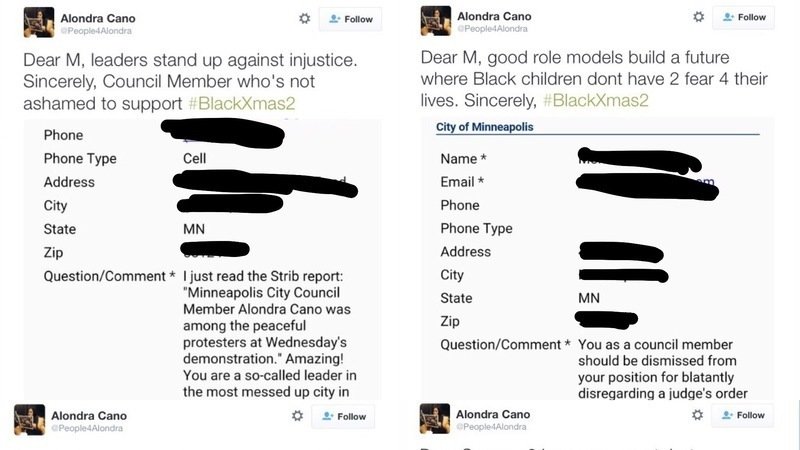Late last year, Minneapolis Council Member Alondra Cano
found herself in a controversy of her own making when she attended a Black Lives Matter protest at the Mall of America, and used her Twitter account to publish the names and addresses of several of her constituents. One of them filed an ethics complaint, or at least publicly stated his intentions to do so. The issue was picked up nationally, and even on a global scale, with mainstream media calling it "doxing" and local bloggers offering a spirited defense of why this was not a violation of that nature. (The link to that particular post has gone dead, and will be added here if it gets back online.)
On a personal note, I think it's great when elected officials join the public in direct action such as protest, and wish more would do so more often. I especially applaud Cano for taking part.
When that post was published, it took the story to a completely different place than what Minneapolis needed it to be, if we're to learn from it and arrive at better local governance. Cano's actions weren't "doxing," and almost certainly didn't violate any laws. They may, however, rise to the level of an ethics violation. And that's where Minneapolis needs its elected officials to aspire to behavior that better facilitates constituent interaction with local government.
From Cano's post-Twitter interviews where she refused to apologize and even insisted she would do it again, it's clear she doesn't understand the implications of her actions.
I do not think the Council Member acted out of ill intent, but instead...


